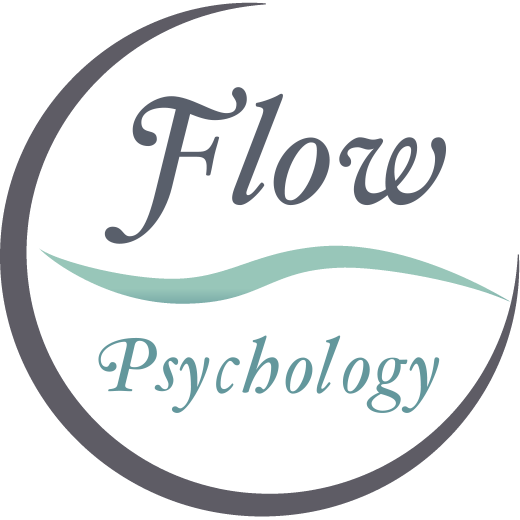Effective psychotherapy and counselling can have a significant impact on an individual’s mental health and overall well-being. Psychotherapy is a form of talk therapy that helps individuals understand and manage their emotions, thoughts, and behaviours. It can be used to treat a wide range of mental health conditions, including anxiety, depression, and post-traumatic stress disorder (PTSD).
One of the primary benefits of effective psychotherapy and counselling is that it provides individuals with a safe and confidential space to express their thoughts and feelings. This can be particularly helpful for individuals who may not feel comfortable discussing their emotions with friends or family members. A trained therapist can help individuals explore their emotions and develop coping strategies to manage difficult feelings.
Effective psychotherapy and counselling can also help individuals develop a greater sense of self-awareness and improve their relationships with others. Through therapy, individuals can gain a better understanding of their own thought patterns and behaviours, as well as how these patterns may be impacting their relationships. By developing better communication skills and learning how to manage conflict effectively, individuals can improve their relationships and feel more connected to others.

What is Psychotherapy and Counselling?
Psychotherapy and counselling are two types of talk therapy that are used to help individuals overcome mental health challenges. These therapies are provided by licensed mental health professionals such as psychologists, therapists, and counsellors.
Psychotherapy is a broad term that encompasses a range of therapeutic approaches aimed at helping individuals understand and manage their thoughts, emotions, and behaviours. It is often used to treat mental health disorders such as depression, anxiety, and post-traumatic stress disorder (PTSD). Some common types of psychotherapy include humanistic therapy, acceptance and commitment therapy, cognitive-behavioural therapy, dialectical behaviour therapy, and psychoanalysis.
Counselling, on the other hand, is a type of talk therapy that is typically used to address specific issues or challenges, such as relationship problems, career changes, or grief and loss. Counselling can be provided in a one-on-one setting, remotely online or in a group setting, and may incorporate techniques from various therapeutic approaches.
Both psychotherapy and counselling involve building a trusting and supportive relationship between the therapist/counsellor and the client. Through this relationship, individuals are able to explore their thoughts and feelings in a safe and non-judgmental environment. The therapist/counsellor works collaboratively with the client to identify goals and develop strategies to achieve them.
Overall, psychotherapy and counselling are valuable tools for improving mental health and well-being. These therapies can help individuals develop coping skills, improve relationships, and gain a better understanding of themselves and their experiences.
The Benefits of Psychotherapy and Counselling
Psychotherapy and counselling are forms of talk therapy that can help individuals overcome mental health issues and improve their overall well-being. These therapies are based on the principles of psychology and are often used to treat a wide range of mental health conditions, including anxiety, stress, depression, substance abuse, and more.
Improving Quality of Life
One of the main benefits of psychotherapy and counselling is that they can help individuals improve their quality of life. By working with a therapist or counsellor, individuals can learn coping skills, improve their self-esteem, and develop better communication skills, which can help them lead a more fulfilling life.
Stress and Anxiety Reduction
Stress and anxiety are common mental health issues that can have a significant impact on an individual’s well-being. Psychotherapy and counselling can help individuals learn relaxation techniques, mindfulness, and other coping skills that can reduce stress and anxiety levels.
Emotional Regulation
Emotional regulation is another area where psychotherapy and counselling can be beneficial. By learning how to regulate their emotions, individuals can better manage their moods and improve their overall mental health.
Behaviour Change
Psychotherapy and counselling can also help individuals change negative behaviours and develop healthier habits. By identifying and addressing negative patterns of behaviour, individuals can improve their relationships, work performance, and overall quality of life.
Relationship Improvement
Relationships are an important aspect of an individual’s life, and psychotherapy and counselling can help individuals improve their relationships with others. By improving communication skills, developing empathy, and learning conflict resolution strategies, individuals can build stronger and healthier relationships.
In conclusion, psychotherapy and counselling can provide numerous benefits for individuals struggling with mental health issues. By working with a qualified therapist or counsellor, individuals can develop better coping skills, improve their relationships, and lead a more fulfilling life.
Types of Psychotherapy and Counselling
Cognitive-Behavioural Therapy
Cognitive-behavioural therapy (CBT) is a widely used form of psychotherapy that focuses on the relationship between thoughts, feelings, and behaviours. CBT is based on the idea that negative thoughts and beliefs can lead to negative emotions and behaviours. The therapist works with the client to identify negative thought patterns and replace them with more positive and realistic ones. CBT has been shown to be effective in treating a wide range of mental health conditions, including anxiety, depression, and post-traumatic stress disorder.
Dialectical Behavior Therapy
Dialectical behaviour therapy (DBT) is a type of cognitive-behavioural therapy that was developed specifically to treat borderline personality disorder. DBT focuses on teaching clients skills to manage their emotions and improve their relationships with others. The therapy is based on the idea that some people are more emotionally sensitive than others and need to learn how to regulate their emotions in a healthy way.
Solution-Focused Brief Therapy
Solution-focused brief therapy (SFBT) is a type of therapy that focuses on finding solutions to problems rather than dwelling on the problems themselves. SFBT is a short-term therapy that typically lasts between six and ten sessions. The therapist works with the client to identify their goals and then helps them develop a plan to achieve those goals. SFBT has been shown to be effective in treating a wide range of mental health conditions, including depression, anxiety, and substance abuse.
Psychoanalysis
Psychoanalysis is a type of therapy that was developed by Sigmund Freud in the late 19th century. Psychoanalysis is based on the idea that unconscious thoughts and feelings can influence behaviour. The therapist works with the client to explore their unconscious thoughts and feelings in order to gain insight into their behaviour. Psychoanalysis is a long-term therapy that can last for several years.
Group Counselling
Group counselling is a type of therapy that involves a therapist working with a group of people. Group counselling can be effective for a wide range of mental health conditions, including depression, anxiety, and substance abuse. Group counselling can provide a supportive environment where people can share their experiences and learn from each other. Group counselling can also be more cost effective than individual therapy.
In conclusion, there are many different types of psychotherapy and counselling available. Each type of therapy has its own strengths and weaknesses, and the most effective type of therapy will depend on the individual’s specific needs and circumstances. It is important to work with a qualified therapist who can help determine the best type of therapy for each individual.
Misconceptions About Psychotherapy and Counselling
Despite the proven benefits of psychotherapy and counselling, there are still many common misconceptions that prevent people from seeking help. Some of these misconceptions include:
Stigma
One of the biggest misconceptions about psychotherapy and counselling is that seeking help is a sign of weakness or something to be ashamed of. This stigma can prevent people from seeking the help they need, even when they are struggling with serious mental health issues. However, seeking help is a brave and proactive step towards improving one’s mental health and overall well-being.
Empirical Evidence
Another misconception is that psychotherapy and counselling are not effective treatments for mental health issues. However, there is a wealth of empirical evidence to support the effectiveness of these treatments. Studies have shown that psychotherapy and counselling can be just as effective as medication for many mental health issues, and can even be more effective in some cases.
Theoretical Orientation
Some people believe that psychotherapy and counselling are only effective if the therapist or counsellor uses a specific theoretical orientation or approach. However, research has shown that the most important factor in the effectiveness of therapy is the quality of the therapeutic relationship between the therapist and client, rather than the specific approach used.
Neutral
Finally, some people believe that psychotherapy and counselling are biased or judgmental and that therapists and counsellors will try to impose their own values and beliefs on their clients. However, a good therapist or counsellor will always remain neutral, and will work with their clients to help them explore their own thoughts and feelings in a non-judgmental way.
Overall, it is important to recognize and challenge these common misconceptions about psychotherapy and counselling in order to promote greater awareness and access to these effective treatments.



